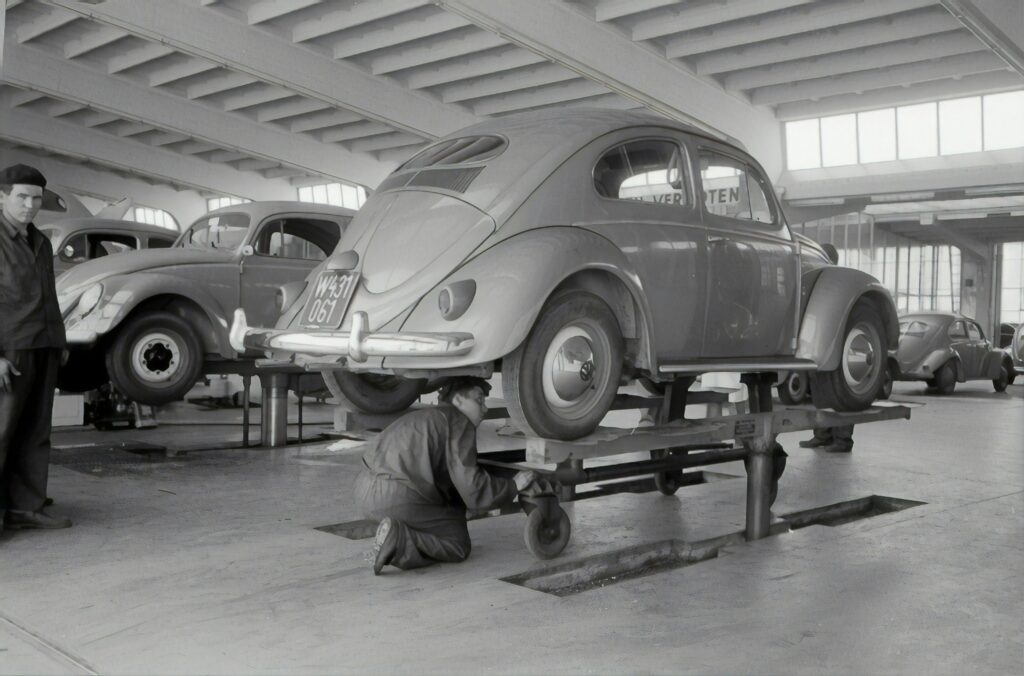In today’s rapidly evolving landscape, consumer behavior plays a pivotal role in shaping industries, and the automotive sector is no exception. As a seasoned expert in the field, I’ve witnessed firsthand the profound impact of changing consumer preferences on the automotive industry. From the rise of electric vehicles to the growing demand for shared mobility solutions, these shifts are revolutionizing how automakers operate and strategize for the future.
Understanding these dynamic consumer trends is crucial for automotive companies looking to stay ahead in a competitive market. In this article, I’ll delve into the key shifts in consumer behavior that are reshaping the automotive industry and explore the strategies that companies are adopting to adapt to this new reality. Stay tuned to gain valuable insights into the ever-changing landscape of consumer preferences and their implications for the future of the automotive sector.
Understanding Shifts in Consumer Behavior
As an expert in the automotive industry, I delve into the crucial aspect of comprehending changes in consumer behavior to underscore their profound impact on the automotive sector. Understanding these shifts is imperative for companies striving to stay ahead in this competitive landscape.
- Emerging Preferences in Car Ownership
Consumers are increasingly leaning towards flexible car ownership models, such as car-sharing services and subscription-based plans. This shift reflects a growing desire for cost-effective and hassle-free access to vehicles without the burdens of ownership. - The Rise of Eco-conscious Choices|
An escalating trend among consumers is the preference for eco-friendly vehicles like electric cars and hybrids. This shift underscores the rising environmental consciousness influencing purchasing decisions, compelling automotive companies to innovate sustainable mobility solutions to cater to this evolving demand.
Impact on the Automotive Industry
As shifts in consumer behavior continue to influence the automotive industry, companies are adapting their strategies to meet evolving demands.
Changes in Vehicle Design and Production
Automotive manufacturers are reimagining vehicle design and production processes to align with consumer preferences. Increased interest in eco-friendly options has led to a surge in electric and hybrid vehicle production. Companies are prioritizing sustainable materials and manufacturing practices to cater to the growing demand for environmentally-conscious vehicles. Moreover, the rise of shared mobility services has spurred the development of adaptable and versatile vehicles that meet the needs of changing usage patterns. These shifts are reshaping the automotive landscape, driving innovation in design and production.
New Strategies for Car Marketing and Sales
In response to changing consumer behavior, automotive companies are revamping their marketing and sales approaches. Traditional advertising methods are being complemented with digital marketing strategies to reach tech-savvy consumers effectively. Personalized marketing campaigns tailored to individual preferences and behaviors are gaining prominence, enhancing customer engagement and brand loyalty. Additionally, the focus is shifting towards experiential marketing through test drives, virtual showrooms, and interactive online platforms. These new strategies emphasize creating immersive and interactive experiences for consumers, fostering a deeper connection with automotive brands in a rapidly evolving market.
The Role of Technology and Innovation
Technology and innovation play a pivotal role in reshaping the automotive industry in response to changing consumer behavior. Let’s delve into how electric vehicles and automation, as well as digital sales channels and virtual showrooms, are influencing the industry landscape.
Electric Vehicles and Automation
Electric vehicles (EVs) have emerged as a key driver in the transformation of the automotive sector. As consumer demand shifts towards sustainable transportation solutions, the focus on EVs has intensified. Automakers are investing heavily in research and development to enhance the efficiency and affordability of electric cars. The integration of automation technologies further complements the rise of EVs, offering advanced safety features and autonomous driving capabilities. This fusion of electric propulsion and automation is revolutionizing the way vehicles are designed, manufactured, and operated, paving the way for a more sustainable and connected automotive ecosystem.
Digital Sales Channels and Virtual Showrooms
The automotive industry is witnessing a paradigm shift in sales and marketing strategies with the proliferation of digital channels and virtual showrooms. As consumers increasingly turn to online platforms for research and purchase decisions, automakers are leveraging digital tools to enhance customer engagement and streamline the sales process. Virtual showrooms enable customers to explore vehicles in a digital environment, providing immersive experiences without physical limitations. The integration of augmented reality and virtual reality technologies allows potential buyers to visualize different car models, features, and customization options from the comfort of their homes. By embracing digital sales channels and virtual showrooms, automotive companies can adapt to evolving consumer preferences, enhance brand visibility, and drive sales growth in a rapidly evolving market.
Challenges and Opportunities
Navigating Supply Chain Disruptions
In today’s automotive industry, navigating supply chain disruptions is crucial for ensuring seamless operations. With the increasing demand for eco-friendly vehicles like electric cars and hybrids, automotive companies face challenges in sourcing sustainable materials and components efficiently. To overcome these hurdles, firms need to establish robust supply chain networks, foster partnerships with environmentally conscious suppliers, and embrace innovative technologies to enhance supply chain visibility and flexibility. By proactively addressing supply chain disruptions, companies can maintain production continuity, meet consumer demands, and stay competitive in the evolving market landscape.
Adapting to New Consumer Expectations
Adapting to new consumer expectations is paramount for automotive companies looking to thrive in a rapidly changing market environment. As consumers increasingly prioritize environmentally friendly products and personalized experiences, automakers must reevaluate their product offerings, marketing strategies, and customer engagement tactics. By incorporating sustainability into vehicle design, investing in eco-friendly manufacturing processes, and leveraging data-driven insights to tailor marketing campaigns, companies can align with evolving consumer preferences and foster stronger brand loyalty. Embracing technologies such as electric vehicles, automation, and digital platforms enables automotive firms to deliver innovative solutions that resonate with tech-savvy customers, creating opportunities for growth and differentiation in the competitive industry landscape.




